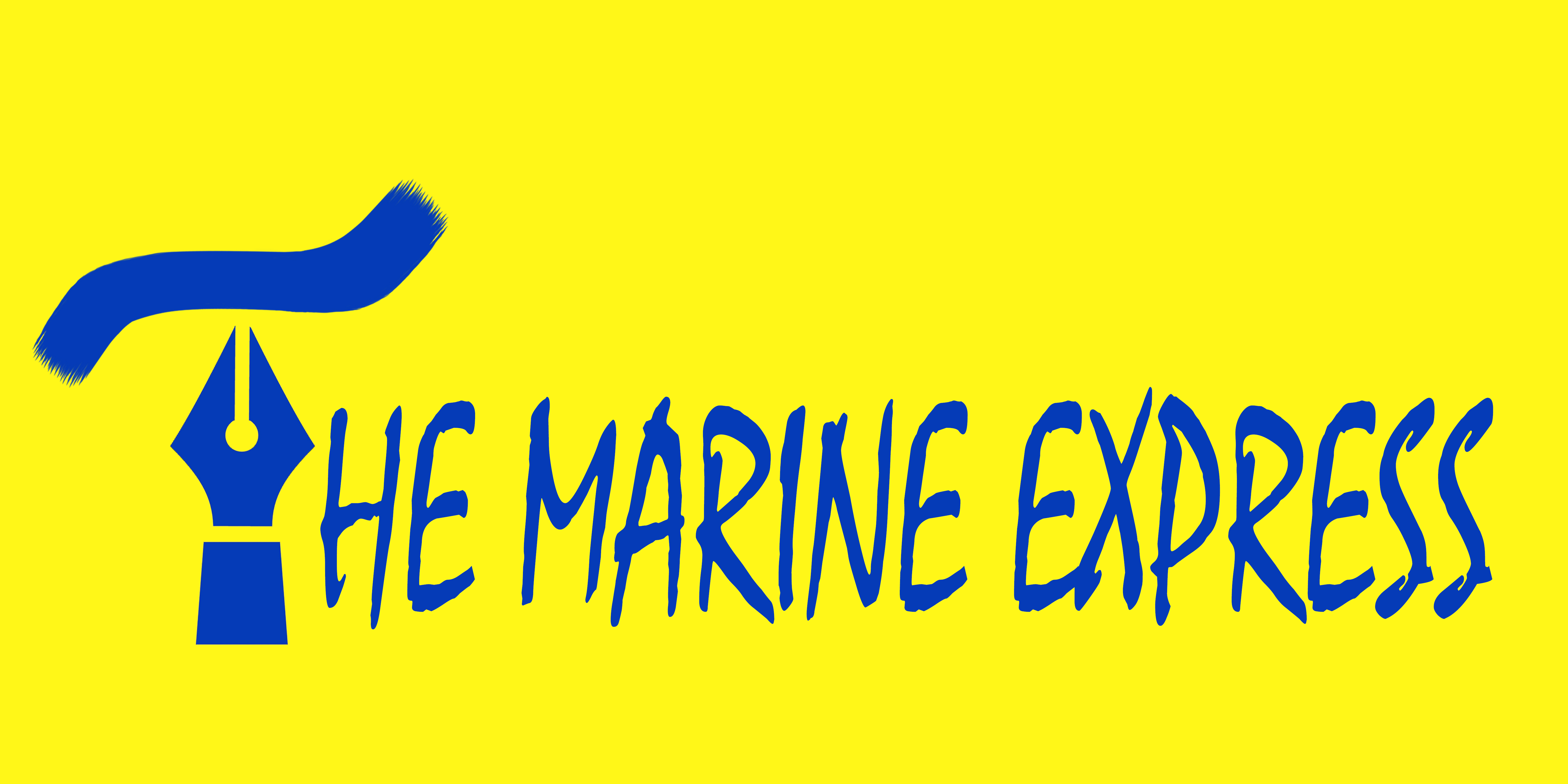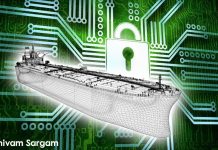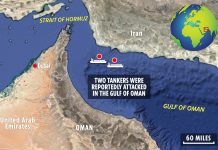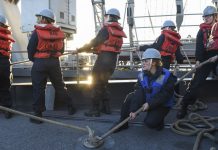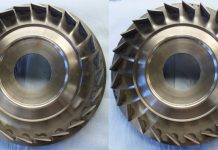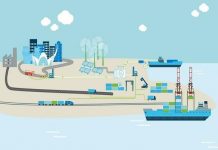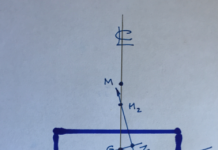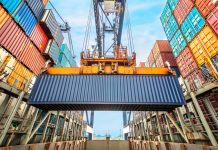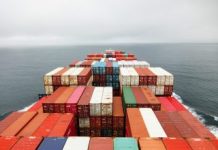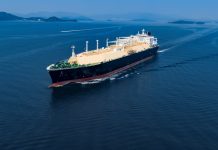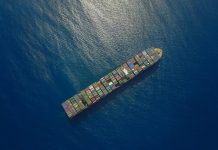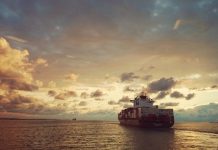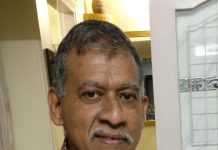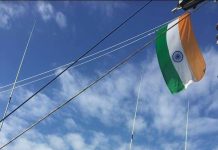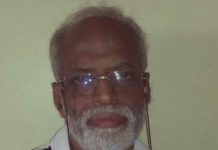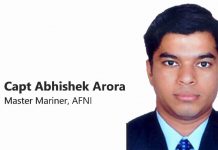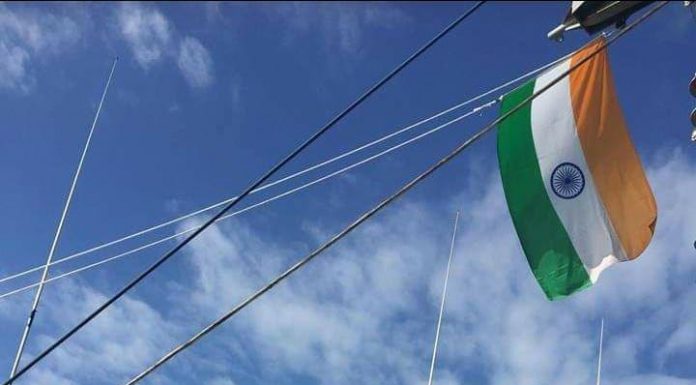Transcript of our conversation – Capt. M. K. Sinha , Deputy Conservator at Chennai Port Trust with Shivam Sargam.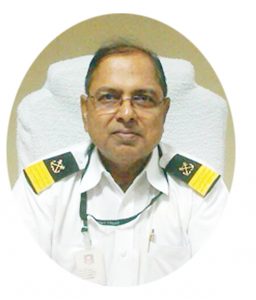
Why did you choose marine field? Was it your choice or you were inspired by any person or event?
I and my friends were studying at St. Xavier’s College Ranchi when we had decided that we will choose some other field and avoid doing further studies as academics. Thereafter we gave most of the competitive examination available at that time. We had seen an article in Hindi magazine “Dharm Yug” wherein a detailed article about challenging carrier of Merchant Navy and the training being provided at ‘Training Ship Rajendra’.
There were almost 500 candidates at Patna Centre for the written test and also similar numbers at Calcutta. After due process of interview, only 6 of us from Bihar were selected. At home, no one knew about this branch and my father consulted many people but only one Bengali doctor said: “As long as you are young you may enjoy it”. Thus the journey began to Merchant Navy.
You have played different roles in the industry, beginning from a Cadet to Deputy Conservator at Chennai Port Trust. How it all did start?
Although I enjoyed sailing but at one time when I came back home after sailing almost six months, I found my elder daughter 9 to 10 months old was being told about me as “Photo Wale Papa” and she was reluctant to come close to me. That was the time I decided to come ashore and looked for various shore jobs. Fortunately, there was one vacancy in Vishakhapatnam Port Trust for Marine Pilots. There were 14 master mariners for a single post in the year 1987 and as expected no outsider was selected but a Dredger Commander of Vizag Port was selected. I got a call after a year to join Vizag Port as Pilot since my name was kept on the panel. Luckily at that time I was also ashore on holiday after sailing and I immediately joined the Pilot’s Job at Vizag Port and my life changed to onshore from at Sea. There I had to undergo six months of training and after due process of training and viva, including practical piloting, I got the Pilot’s Licence. In the due process, I got various promotions to ‘Dock Master’, Dredging Superintendent, and Harbour Master and finally, I was selected as Deputy Conservator of Chennai Port Trust in the year 2006. I had one of the longest tenures as Deputy Conservator in Chennai Port Trust.
How was your experience of sailing? Was there any point of time you found it difficult or adventurous?
I started as a cadet on a Cargo Ship and my first experience on the ship was terrible. As the ship entered the Bay of Bengal moment we left Calcutta Port I felt sea sick but my chief officer sent me on to the forecastle of the ship. I think that made me strong to face the Seasickness.
I had worked on a cargo ship and oil tankers during my sailing experience. While sailing as Second Officer on a cargo ship we encountered rough weather while our ship was in the Bay of Biscay. The weather was so severe that we felt as if the ship is like a small box, rolling, pitching and heaving that is tossing up without any headway. Our ship was going full speed and steering was not responding as the wheel was put on hard over to starboard but the ship was moving to portside, and in twenty-four hours the ship was circling at the same spot hardly making headway of 2 nautical miles. After almost more than 24 hours the weather improved and finally, the ship started making headway. The next day we heard that two of the other ship had gone aground. During our time we used to navigate through sun sights and star sights using the sextant and tables to find the position of the ship at high seas.
I still remember when I was sailing on a cargo ship as Chief Officer where our Gyro Compass was not working properly and even the magnetic compass was erratic. As I came up on the navigating bridge at 4 am for my duty 0400hrs to 0800hrs, I saw the Captain, Second Officer, and junior cadet on the bridge trying to locate the position of the ship in the Red Sea. We could see various shorelines on Radar and also various abandoned oil rigs lights but could not locate the position of the ship. On this ship, the navigating bridge and chart room were separate, just adjacent to each other. One after other we were seeing the Radar picture and we came inside the chart room. The steering was already put on hand steering and the helmsman was asked to navigate by sight and head for one of the flashing lights. As our Captain went out of the chart room, I heard the order hard over to Starboard and immediately after hard over to Port. I could see from the porthole the very huge legs of the abandoned oil rigs on our port side which we missed by few meters. The only God could have saved this accident. For almost a couple of months, I used to get terrified remembering the huge legs of abandoned oil rigs. The Captain left the ship on me and I managed to locate the position of the ship which was very close to the eastern shore of the Red Sea. We got our Compass repaired at Suez Bay before crossing Suez Canal.
Why did you prefer working at Sea? How different it was from working on-shore.
I preferred working at Sea due to—I enjoyed sailing and visiting various ports of the world with a different culture. Every ship was like a family as long as you were on the ship. Off course the good salary without much expenditure was an added attraction. Onshore you have social interaction after office work which is not available on board.
Tell us about your work as a Deputy Conservator. At the end of the day, what makes you feel that you had a successful day?
Deputy Conservator is the HOD of Marine Department in any Indian Port and the same designation is known as Harbour Master in foreign countries.
Brief Description of responsibilities as Deputy Conservator HOD of Marine Department in Chennai Port Trust:
- Safe pilotage of Vessels by the allocation of Pilots and crafts.
- Ensure compliance to National and International statutory requirements for marine-related activities.
- Fire Safety and Safety Officer for monitoring and handling of IMDG Cargo.
- Monitoring and implementation of the ISPS Code as PFSO.
- Marine Pollution Control and ensure compliance to MARPOL Regulations and DG (Shipping) Guidelines.
- Co-ordinating with Oil Companies operating at Chennai Port regarding Oil Spill Response Facility.
- Ensure that Maintenance Dredging is carried out as required.
- Co-ordinate and maintain Crisis Management and Disaster Preparedness Plan.
- Conducting statutory preliminary enquiries on shipping casualties/accident as per Merchant Shipping Act
- Co-ordinate with Navy, Coast Guard, DG COMMCENTRE for conducting Security Exercises and at times of Security incidents.
- Maintain, Implement and exercise the Port Facility Security Plan (PFSP).
- Recommending for changes to Security Level of the Port based on the necessity.
- Initiate precautionary measures and take action at times of Natural Calamities like Storm, Earth Quake, Tsunami etc.
- Conducting review meetings regularly with the officers of the Department to continually improve the Operational Efficiency of the Department.
- Ensure Port Entry Rules for Vessels are complied with.
- To attend a meeting with State Government for implementation of Oil Spill Response of the Port and Cyclone Preparedness.
As long as you are straightforward and efficient you can pass through any turbulence of life. I feel I have done my best to run the Marine Department as my other subordinate officers were very senior to me at sea life.
Two years of post-retirement, what are your plans to keep yourself motivated?
As I am attached to the religious community, presently I am engaged with CSTP (Civil Service Training Programme) of Dayalbagh for making a quiz for UPSC examination on GK and Current Affairs which keeps me busy besides field work and attending Satsang. I am likely to join the NMA (Navigator Maritime Academy at Agra) as principal. The institute is awaiting approval from Director General of Shipping for conducting modular courses.
What would be your message to the seafarers?
“Live as if you are to die tomorrow. Learn as if you are to live forever.”
